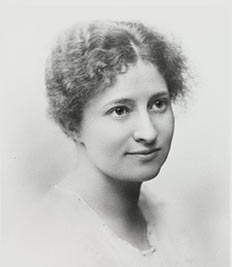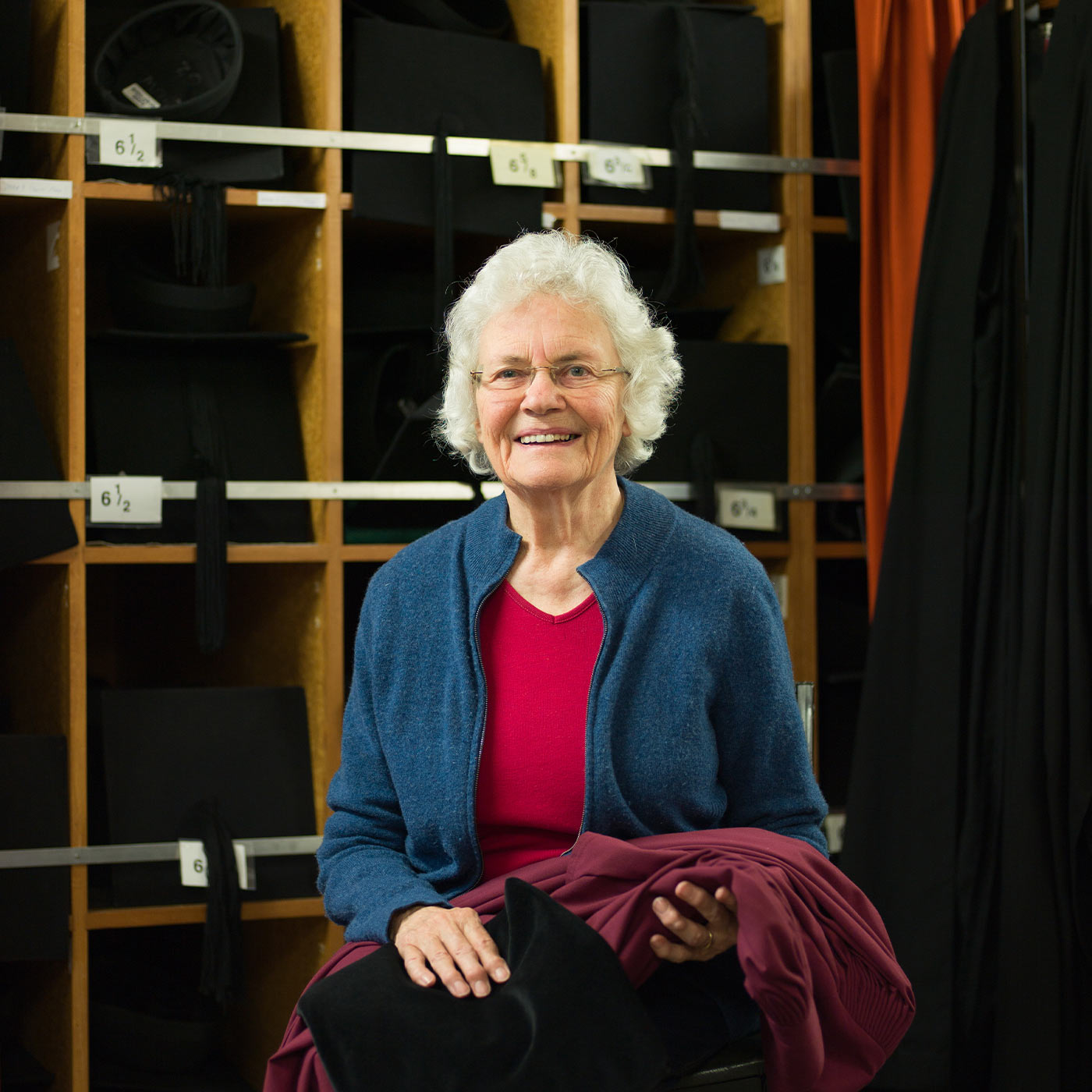Addendum
By women, for women
Graduate Women Otago, the organisation that has been dressing Otago graduands since the 1930s, is celebrating 100 years of empowering female graduates.
It's a remarkable achievement, says Sue Cathro, Graduate Women Otago's former president and longstanding committee member, to be celebrating the centenary of an organisation committed to supporting the endeavours of graduate women, when you consider the historical environment for women at the time.
While at home at Otago – women had been awarded degrees since Caroline Freeman received her BA in 1885 – female university students were still in the minority, and in the UK Oxford University only began granting degrees to women in 1920.
“Our founders were pioneers,” says Cathro, who was inspired to join the organisation in 1969 due to the “wonderful women” and an interest in the hiring of academic dress: she held the position of academic dress convenor for 30 years.
“Establishing an organisation dedicated to female university graduates to use their education to reach out worldwide to build relationships and understanding, take part in local, national and international affairs and work towards creating a peaceful world, was really remarkable.”
Originally formed as the first branch of the New Zealand Federation of University Women, an offshoot of the International Federation of University Women, Graduate Women Otago's foundations lie half a world away. In the aftermath of World War I, a desire from university women to promote peace and international understanding led to the establishment of the International Federation of University Women (IFUW), with the first conference held in London in 1920.
A year earlier, Helen Rawson, the woman who would later found the New Zealand branch of the federation and become New Zealand's first president, met with IFUW founders Winifred Cullis and Virginia Gildersleeve. The Cambridge University BSc graduate, who received her degree in retrospect due to Cambridge not awarding degrees to women at the time, returned to Dunedin in 1920 with an enthusiasm for the new organisation, recruiting other like-minded women.
A letter, dated June 1920, was sent by the temporary committee to university colleges in Christchurch, Wellington and Auckland, encouraging their groups to join the proposed new organisation. At the first New Zealand conference in 1921, Helen Rawson, by then the Dean of Home Science at Otago, was elected president, the Otago branch became the first Dominion Executive and undertook to draw up a constitution for New Zealand.

Helen Rawson, who founded the New Zealand Federation of University Women.
G. Helen Rawson, n.d. J.Webster photograph, from file copy print, 693.00368, Hocken Collections, Uare Taoka o Hākena, University of Otago.
At the second IFUW conference in Paris in 1922, Kate Hogg, an Otago graduate studying at the Sorbonne, presented the constitution and NZFUW became affiliated.
“These women were well travelled, well educated, amazing women of their time,” says Cathro. “There are many links between the original founders and the group I later joined in the 1960s – including a personal link with Kate Hogg who was my French teacher at secondary school.
“In those early days, there was already an Otago University Women's Association and, for several years, the two organisations ran side-by-side, sharing committee members until 1924 when they amalgamated.”
From the beginning, the organisation has raised money for fellowships to support graduate women – initially to come to New Zealand to study. Fundraising also enabled the purchase of Crosby Hall, a 16th century house in London used as headquarters for the British federation, which became a place to stay and study for graduates from all over the world.
In 1928, New Zealand established its own fellowship, supporting New Zealand graduates to further their studies overseas. This required additional funds and, in 1933, the Otago branch identified a gap in the market and a new opportunity that would lead to the organisation's major fundraising activity from then until present day – academic regalia hire.
Cathro says up until then academic regalia was borrowed from staff of schools and the University but, as the numbers of students increased, more gowns and hoods were needed.
Home Science's Avice Bowbyes and her helpers made the first six hoods. Gowns and trenchers were gradually acquired and, in the 1950s, the University's stock was bought and the branch has organised all the hiring ever since.
“Over the years I've been involved a huge amount has changed. Now we have several graduation ceremonies every year, there are a prolific number of different degrees on offer, including postgraduate, and we also hire out regalia for special events, such as Otago Girls' High School 150th celebrations, school prizegivings and to Otago Polytechnic staff for their two graduations each year.”
It's a big job and is run by a team of convenors, with the help of member volunteers and student helpers. Cathro retired as convenor at the end of 2019, so the team has had to cope with the problems of the pandemic, lockdowns and cancellation of graduations without her.
“Nowadays, our members don't make all the hoods: the work is farmed out to seamstresses around the city, but I have made the odd hood in the past – probably several hundred!” says Cathro.
“COVID-19 has definitely thrown a spanner in the works – with last-minute cancellations of graduation ceremonies – but the regalia hire has seen us through many years of sustainable fundraising. Identifying such a consistent source of funding has enabled us to make a significant contribution through our scholarships on offer.”
These include community awards of up to $1,500 for community-based organisations, travel awards (established as a 1990 project) to allow members to present original work at national and international conferences, and scholarships named after past members – the Daphne Purves Award (maximum of $4,000 to help women graduates obtain specialist training and to carry out independent research in any country) and the Helen Benson Awards (up to $1,500) for non-graduates to pursue a course of study.
“We've supported so many different women over the years across a range of disciplines and study areas and enabled them to travel all around the world.
“Through our community grants, we've also helped a number of local organisations and helped women take up additional training to help communities. One year, we had a woman who needed to get her heavy-driver's licence so that she could drive the local fire engine which was a fantastic goal. Further afield, we've given money to other projects such as the establishment of a kindergarten in Sierra Leone.
“Our branch has also produced national federation presidents and National Council of Women members, including Helen Benson [Rawson] who became president of the National Council of Women in 1939, one of the few women to be the national president of both organisations, while today seven of the current national council Dunedin members, have been presidents of one – or both – local branches.
“We're extremely proud of our contribution over the years.”
AMIE RICHARDSON
Longstanding Graduate Women Otago academic dress convenor Sue Cathro: “Our founders were pioneers.”
Photo: Guy Frederick

